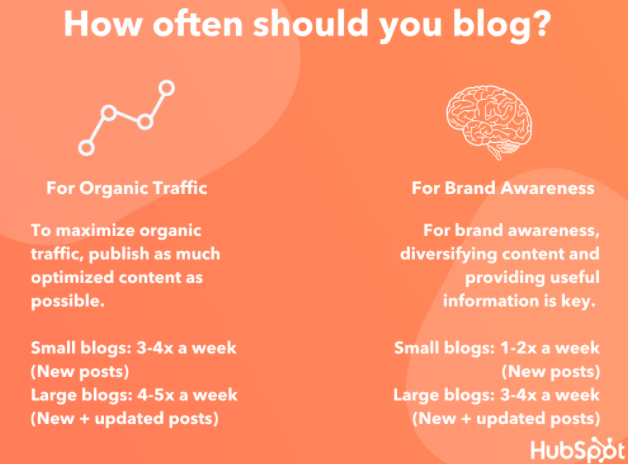
How to Use Transcription Services to Repurpose Your Content
Keeping your audience engaged with your content is a full-time job in itself. You must constantly evaluate your current content’s engagement metrics while also anticipating the needs of your growing audience.
With this in mind, new and updated content is crucial to any successful digital marketer’s strategy. How can you generate new content without spending more time than you have available? With transcription services.
In this guide, I’ll explain what transcription services are and what they can do for digital marketers. This will include a look at one particular use case—repurposing content—to give you an idea of just how valuable these services can be.
What Are Transcription Services?
Transcription services are business services that transcribe audio to text. The audio is most often pre-recorded and is then transferred to transcription professionals, who are trained in shorthand. They are able to quickly and accurately transcribe audio from many different sources.
You also have the option of AI-powered transcription tools, such as Otter and Rev. These services combine AI with trained professionals to deliver a top-notch experience.
From podcasts and videos to workshops and live speeches, a transcription service can help you to preserve your audio in text format. This can later be used for reference or, as I’ll outline below, as a way to repurpose your marketing content.
When are Transcription Services Used
Transcription services are most often used by physicians, scientists, researchers, and other technical professionals. Their spoken notes are transcribed into written notes and reports that can be used for reference or recordkeeping.
When you think of transcription, you may also think of court proceedings and police investigations. These, too, are used for recordkeeping (often public record) and as a way to make the proceedings accessible to all.
However, transcription can offer great benefits to digital marketers, too. One of the most effective ways to use transcription is to repurpose content and create high-value content in multiple formats.
5 Ways to Use Transcription Services to Repurpose Your Content
There are plenty of benefits transcription services can provide to digital marketers, and repurposing of content is just one. Here are five ways you can use transcription to expertly repurpose your content.
1. Turn a Video Into a Blog Post
Whether a new or established digital marketer, I can safely assume you never feel as if you’re hitting your weekly or monthly blog post targets. By transcribing your videos into blog posts, you can get that much closer to reaching your goal.
How many posts should you publish a week? According to HubSpot, the sweet spot can be anywhere from one post to five posts per week.

However, this will depend on the size of your website and what you hope to achieve. For a small website with a goal of maximizing organic traffic, for example, three to four new posts per week is recommended.
Another benefit of turning videos into blog posts is accessibility. While many digital media platforms offer closed captioning, they aren’t always the ideal way to digest content. By turning videos into blog posts, you can ensure all of your traffic has access to your content in multiple ways.
Of course, you should aim to bulk up these blog posts in ways that benefit the readers. These include using visuals (e.g., images, infographics, charts) and adding more in-depth examples.
The transcription should serve as a starting point to creating engaging, valuable blog posts.
2. Turn a Podcast Into a Video or Blog Post
You don’t need to forfeit multimedia content entirely! You can “upgrade” your podcast to a video using transcription services. Just add some visuals and you can now share to digital media platforms like YouTube and Vimeo.
The greatest benefit here is the ability to reach a wider audience. While there is certainly crossover between podcast listeners and video watchers, there are some people who stick strictly to one format. By turning your podcast into a video (or vice versa), you open your content up to a whole new audience.
You have a few options here when it comes to adding visuals to your videos. The simplest is using one image (perhaps a solid background with your brand and website URL) throughout the entirety of the video. This isn’t appealing, but it will enable you to add your content to sites like YouTube.
For more appealing visuals, you can also try stock photos, digital imagery, or even b-roll.
How can you ensure the visuals you use are appropriate and appealing to your audience? Search YouTube for similar content keywords to see what types of videos your target audience is currently engaging with. This can ensure you are on the right track, while also giving you ideas on how to improve your content over the current offerings.
Or, you can turn your podcast into a blog post.
For example, Content Marketing Institute’s Joe Pulizzi hosts a podcast, then turns the transcript into a detailed blog post. This allows users who don’t have time to listen to still access their content.

3. Create a List-Building PDF
Do you have a video or podcast episode that would make great list-building content? Then consider hiring a transcriptionist to turn that content into text.
List-building content, also known as lead magnets, are a great way to build your email subscription list. It is an offer of free content in exchange for an email address. However, it is not as easy to attract people to your list-building content as it was before everyone had a website. Your content must be truly compelling and high-quality.
There are plenty of lead magnet formats to choose from, including:
- checklists
- cheat sheets
- e-books
- infographics
- case studies
- white papers
Using a unique angle, you can use the above formats to attract a targeted audience. With such an array of content types, it’s likely you have a video or podcast episode that can easily be transformed into one of the above.
4. Build a Resource for Social Media Content
There’s bound to be a Tweet-worthy quote or two from your latest podcast episode. Instead of replaying the episode and scrubbing through it, turn the episode into a transcript. This will make it incredibly easy to find social media content to share.
Without the need to scour your audio, you can now spend that time creating attractive visuals using platforms like Canva or Adobe Spark. These services allow you to create the ideal visuals for each social media platform, and they even include templates to get you started.
Do keep in mind the cost of transcription services may increase if your episode includes more than one person. This can take time and skill to navigate. On the other hand, the added benefit of transcribing multi-guest content is that multiple speakers can add refreshing insight to your social media pages, especially if the guest has their own social profile to engage with your audience.
5. Create an E-Course
If you want to create a substantive course, then consider combining multiple videos or podcast episodes on a similar topic. The resulting e-course can then be offered as a lead magnet or even a paid course.
With platforms like Kajabi and Thinkific, you can host your online course with ease. How can you ensure the course you create is profitable? The steps to creating a successful online course include:
- Choosing a fail-proof, high-demand topic.
- Creating compelling course objectives.
- Structuring your course modules effectively.
- Choosing a platform to host the course.
- Marketing your course strategically.
As a paid course, the content should be of exceptional quality and it should go in-depth. Transcriptions of your previous content will be helpful to create an outline, but you should really dig deep and build out the content as best you can.
Before you employ a transcriptionist, take special care to pick your best audio and video episodes for transcription. These will form the basis of your course, but they’ll of course need to be bulked up with further examples, imagery, and more.
Transcription Services Frequently Asked Questions
Transcription is invaluable to digital marketers, but perhaps you still have a few questions. Let’s go over them.
How much does it cost to get a transcription of your content?
The cost to transcribe your content will vary. Consider that transcriptionists have various ways of charging for their work (e.g., per hour, by project) and rates will vary by experience level, location, and more.
How long does it take to transcribe audio?
Just as with cost, the length of time it takes to transcribe your audio will vary. The industry standard is two to three hours per one hour of audio. However, that assumes the audio quality is clear with little to no background noise.
Do transcribers use software?
Even professional transcriptionists rely on software to ensure efficiency and accuracy. With tools like Amberscript and Happy Scribe, you (or your editors) can collaborate with your transcriptionist in real-time. This ensures a seamless transcription experience.
Are transcription services accurate?
As with most services, you get what you pay for. The same can be said for transcription software tools, as well. The more experienced your transcriptionist (or advanced the software you use), the more accurate the transcriptions are likely to be.
{
“@context”: “https://schema.org”,
“@type”: “FAQPage”,
“mainEntity”: [
{
“@type”: “Question”,
“name”: “How much does it cost to get a transcription of your content?”,
“acceptedAnswer”: {
“@type”: “Answer”,
“text”: ”
The cost to transcribe your content will vary. Consider that transcriptionists have various ways of charging for their work (e.g., per hour, by project) and rates will vary by experience level, location, and more.
”
}
}
, {
“@type”: “Question”,
“name”: “How long does it take to transcribe audio?”,
“acceptedAnswer”: {
“@type”: “Answer”,
“text”: ”
Just as with cost, the length of time it takes to transcribe your audio will vary. The industry standard is two to three hours per one hour of audio. However, that assumes the audio quality is clear with little to no background noise.
”
}
}
, {
“@type”: “Question”,
“name”: “Do transcribers use software?”,
“acceptedAnswer”: {
“@type”: “Answer”,
“text”: ”
Even professional transcriptionists rely on software to ensure efficiency and accuracy. With tools like Amberscript and Happy Scribe, you (or your editors) can collaborate with your transcriptionist in real-time. This ensures a seamless transcription experience.
”
}
}
, {
“@type”: “Question”,
“name”: “Are transcription services accurate?”,
“acceptedAnswer”: {
“@type”: “Answer”,
“text”: ”
As with most services, you get what you pay for. The same can be said for transcription software tools, as well. The more experienced your transcriptionist (or advanced the software you use), the more accurate the transcriptions are likely to be.
”
}
}
]
}
Repurposing Transcriptions for Content Conclusion
Your audience craves new and updated content on a regular basis. While this can seem a daunting task, audio transcription services can offer a solution.
With transcription, you can turn your audio content into text. This text can then be repurposed into other forms of content, including blog posts, social media content, and online courses. Transcribed content can help you to satisfy the needs of your growing traffic numbers, while also providing accessible content so as to reach a wider audience.
Depending on the quality of the services you use, you may not even need to spend much time editing the transcription. This will save you immeasurable time while also expanding your reach as a digital marketer.
Which of the above content formats will you transform your audio content into?
